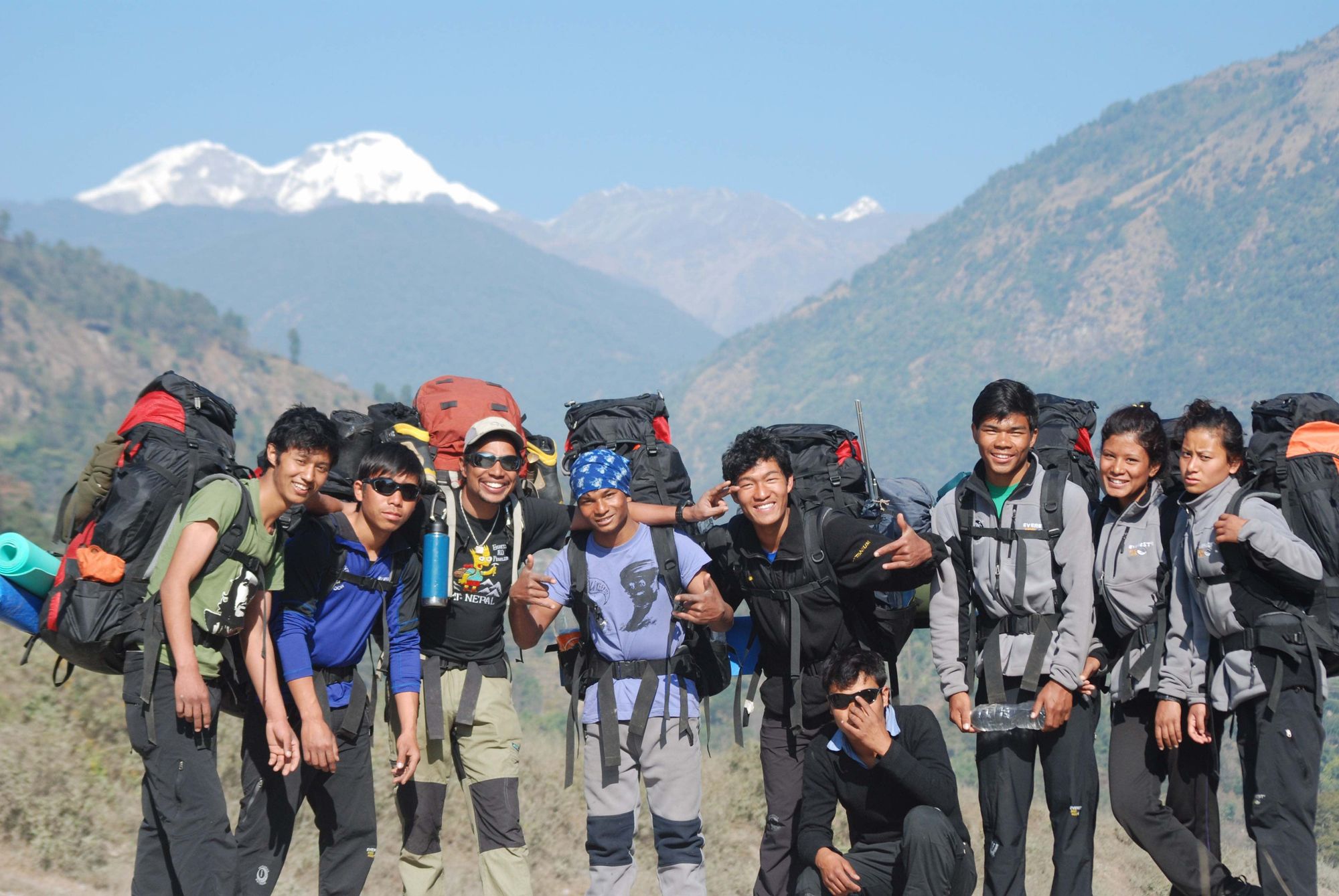Jagan Timilsina isn’t your run-of-the-mill tour guide. When asked about his proudest moments, he could brag about climbing more than 25 peaks including Mount Everest, or recount winning the 1700 km Great Himal Race across the Nepali Himalayas to raise money for charity. Instead, he talks about people.
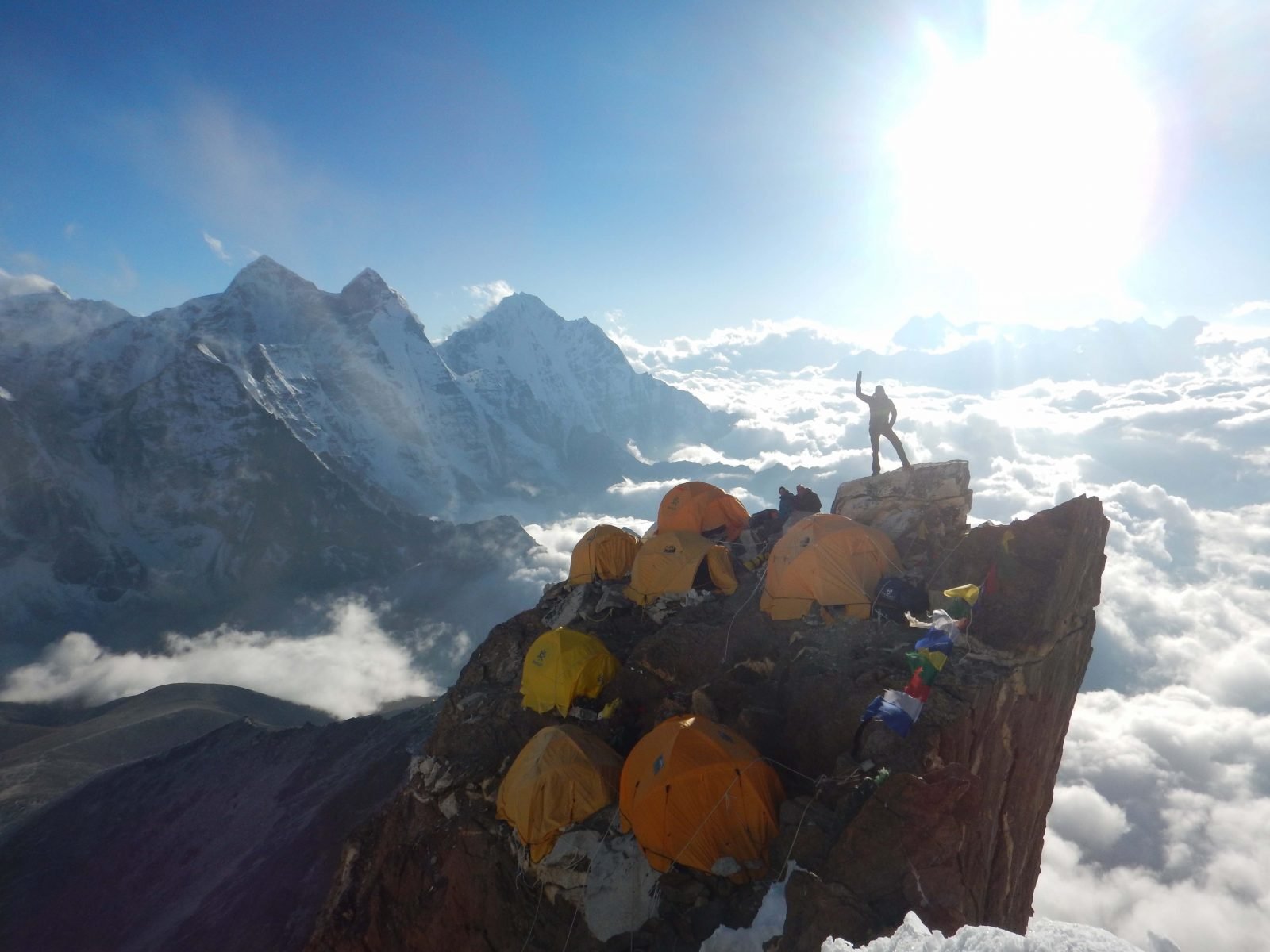
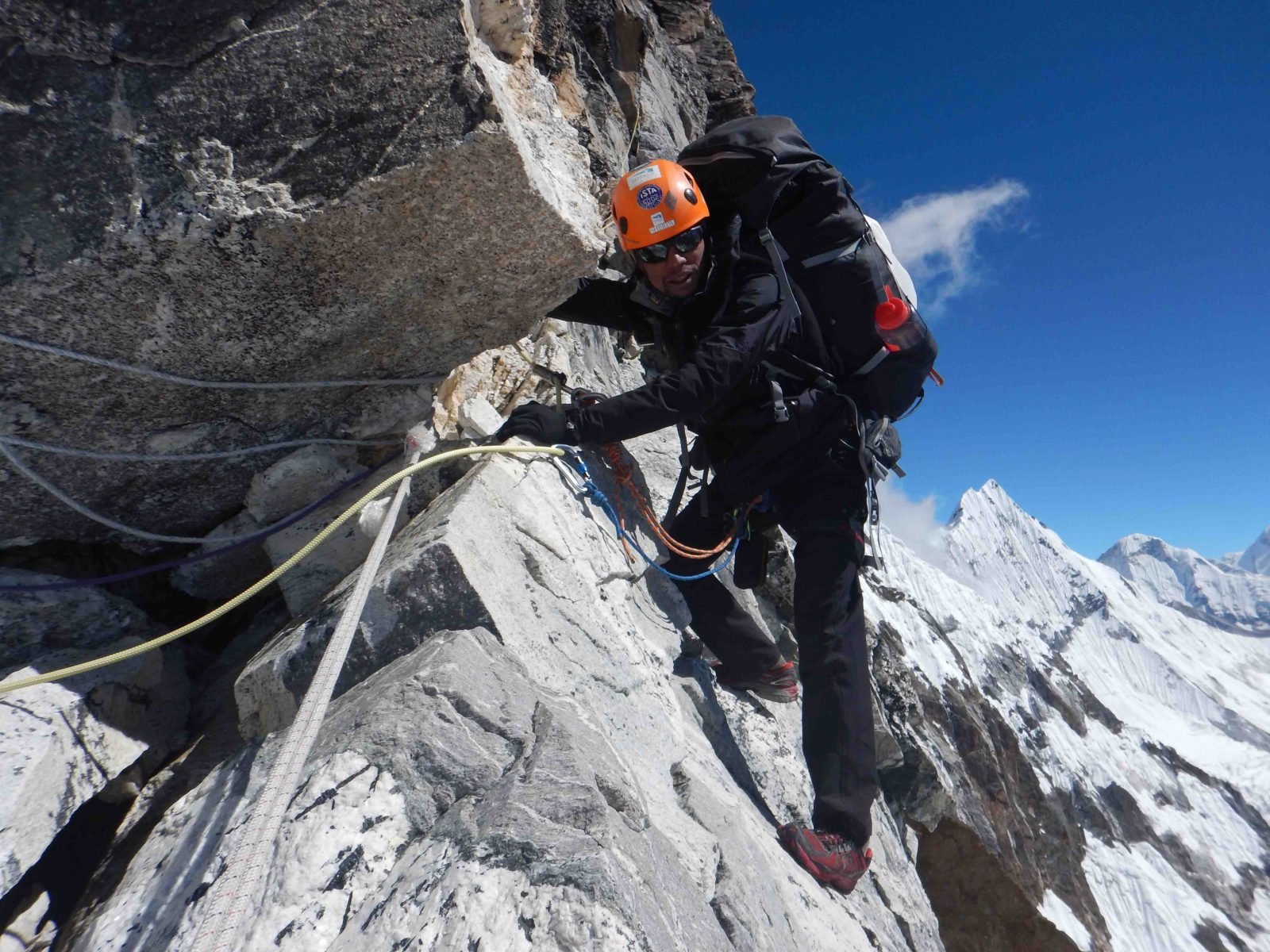
“Three years ago I was recruiting porters in a very remote and cut off part of Nepal called Dolpa. A young boy, Hansa, approached us about becoming a porter but was too young. In these remote areas school is often an overlooked option — it might be too far, or perhaps it’s too much of a financial burden for the family. I gave him my details and told him to get back in touch when he turns 17. Three years later he got in touch, and we offered him a job as a porter. Having experienced life as a porter and completed our guide training programme, he’s now our assistant guide in Pokhara and couldn’t be happier”, beams Jagan.
Responsible tourism is about making a positive contribution to the places that need it most.
Having climbed the ranks from humble porter to adventure company owner in twenty years, Jagan is on a mission to make sure young people in Nepal get the most from the country’s tourism industry.
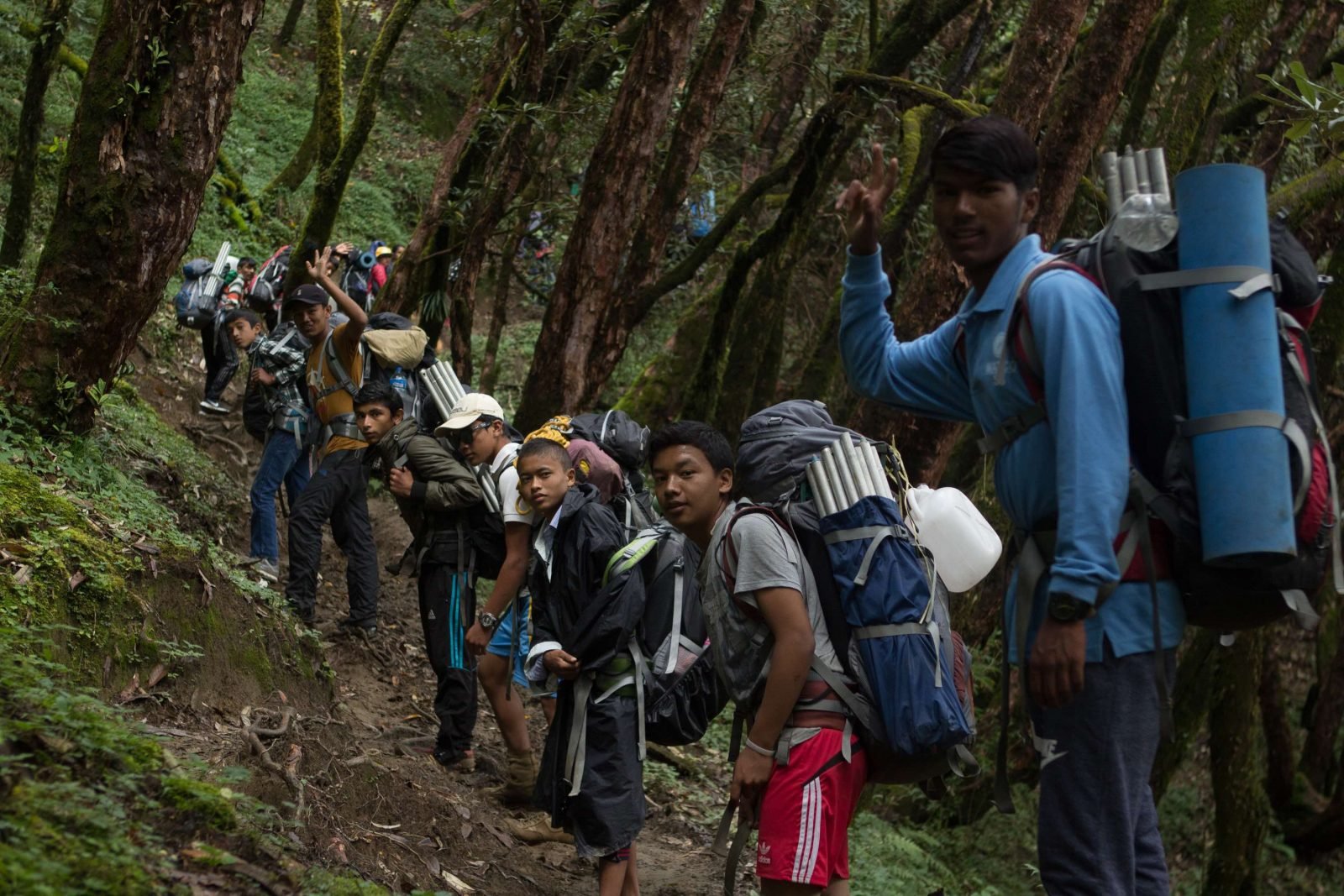
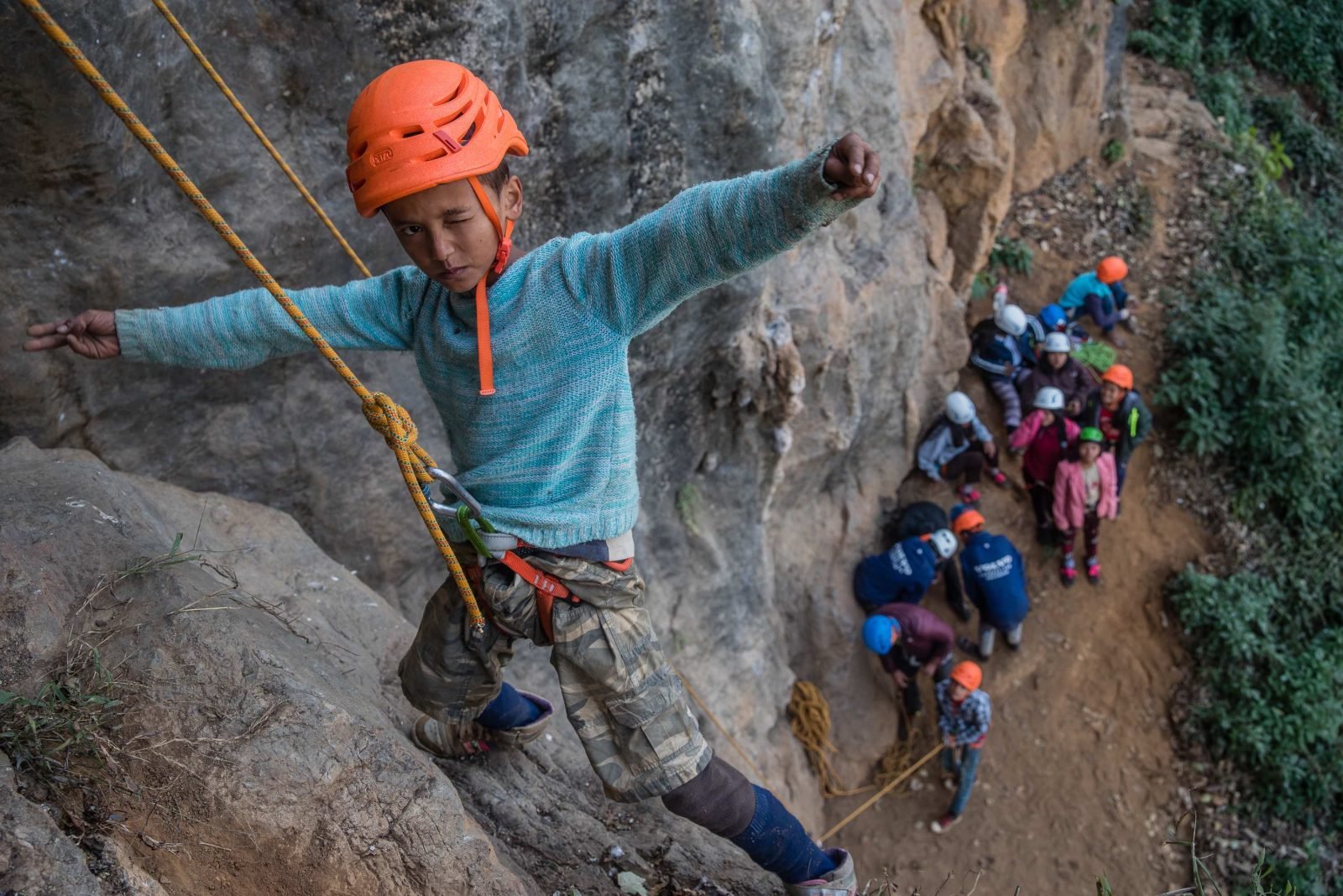
His approach is part of a broader positive impact travel movement. At the opposite end of the spectrum from over-tourism and all-inclusive resorts, positive impact travel ensures that tourist pounds provide vital employment and economic opportunities. As the traveller, you may not notice the difference, although it’s a given that your adventure will be more memorable and your soul inexplicably warmer.
Tourists think that porters grow up in the mountains and are made for the work, but that’s often not the case. Most porters are kids from the lowlands with no clue about the appropriate kit, fitness, mountain living and how hard the work is.
Hansa’s story makes it sound simple for young people in Nepal to benefit from tourism, but that’s not always the case. Jagan experienced some of the barriers himself.
Growing up in a small farming community outside of Pokhara, where brightly-coloured small-holdings sit beneath one of the world’s most epic mountain ranges, Jagan felt the need to contribute to his household from a young age. He asked the village elders about getting work as a mountain guide, but with no experience, a porter role was the only option. With little support and no idea how to progress, Jagan doesn’t remember lugging 60 to 70 kg up the mountains fondly.
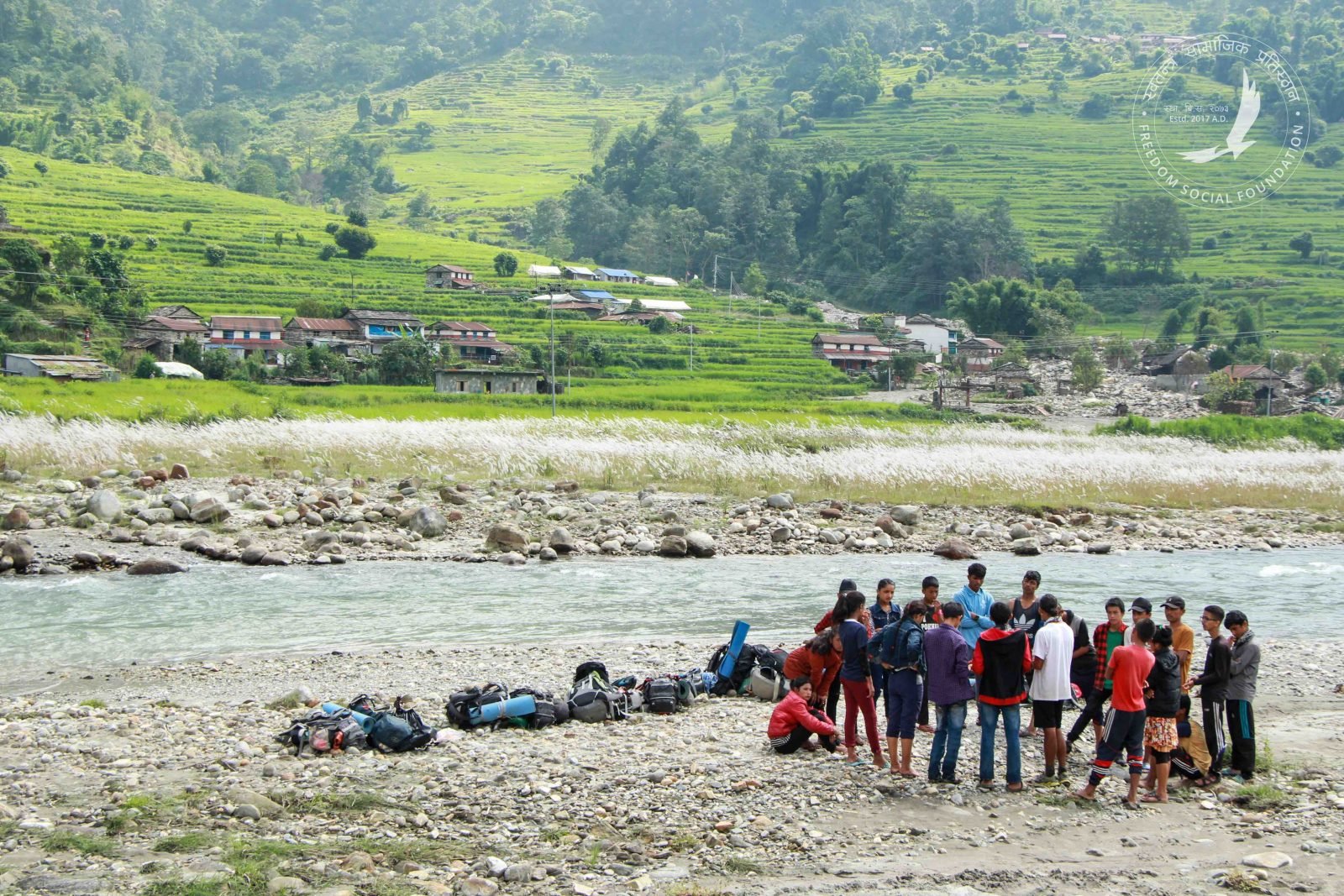
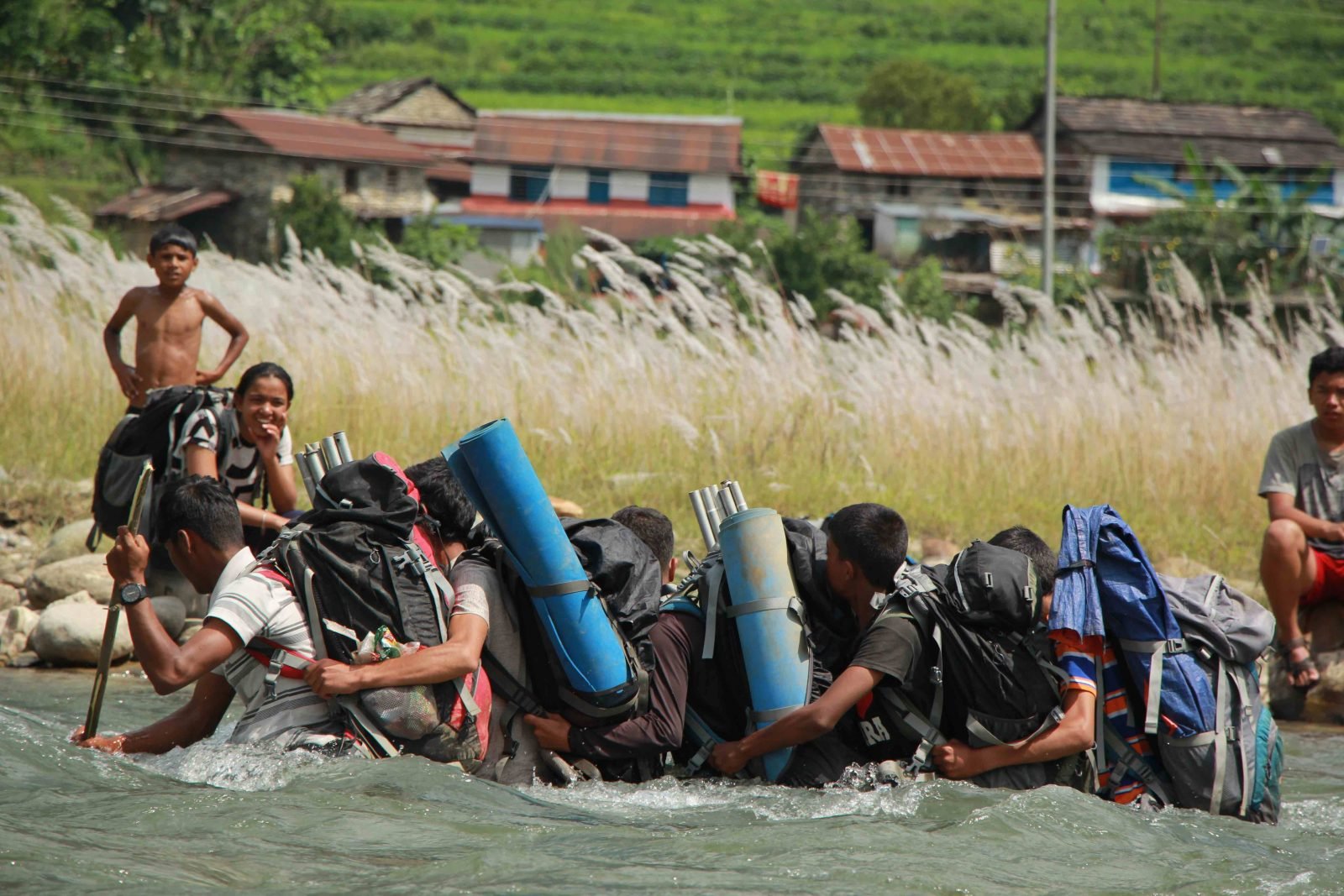
“I only started enjoying the mountains when I got to interact with others, learn from tourists and guides. I was lucky to climb my way up from porter to guide; it’s not an easy path.”, recalls Jagan. “Tourists think that porters grow up in the mountains and are made for the work, but that’s often not the case. Most porters are kids from the lowlands with no clue about the appropriate kit, fitness, mountain living and how hard the work is.”
In most trekking companies, the expectation placed on porters is akin to you or me being asked to lug kit up The Himalayas all day, every day. Jagan’s guiding and porter standards set his team aside — preparing porters for what to expect from the mountains, what tourists expect from them, and how to make the trip run more smoothly. He also kits porters out with the right outdoor gear, ensures fair tipping practices, pays above industry rate, reduces their loads and provides meals.
Apart from a potential career, outdoor education allows youths to learn skills that just can’t be found in an indoor classroom. We firmly believe that introducing outdoor education will instil in students the ability to work together as a team, to think independently, develop survival skills and a strong appreciation for nature.
“The training is vital; many young boys lose their lives on the job because they’re not prepared. I never wanted that to happen in my team.”, emphasises Jagan.
Beyond on-the-job support, Jagan has also set up a charity to introduce more young Nepali’s, including women, to adventure travel and getting outdoors. “I always wanted to teach porters how they can become leaders and introduce outdoor education to rural youths in Nepal. In 2017 I ran the Great Himal Race (1600 km through Nepal’s Himalaya range) and raised over £4,000 which gave me the funds needed to launch our Outdoor Education Project.”
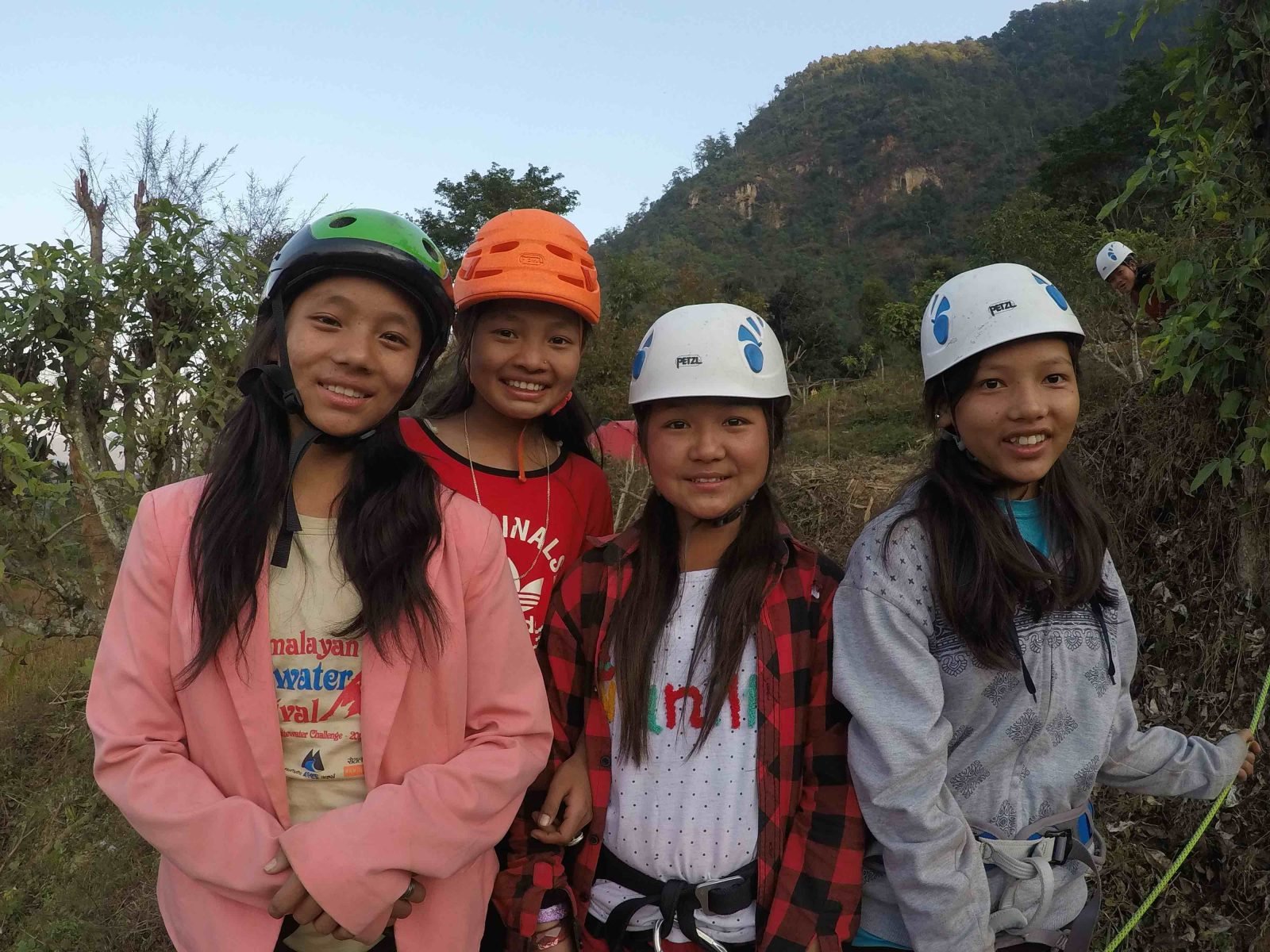
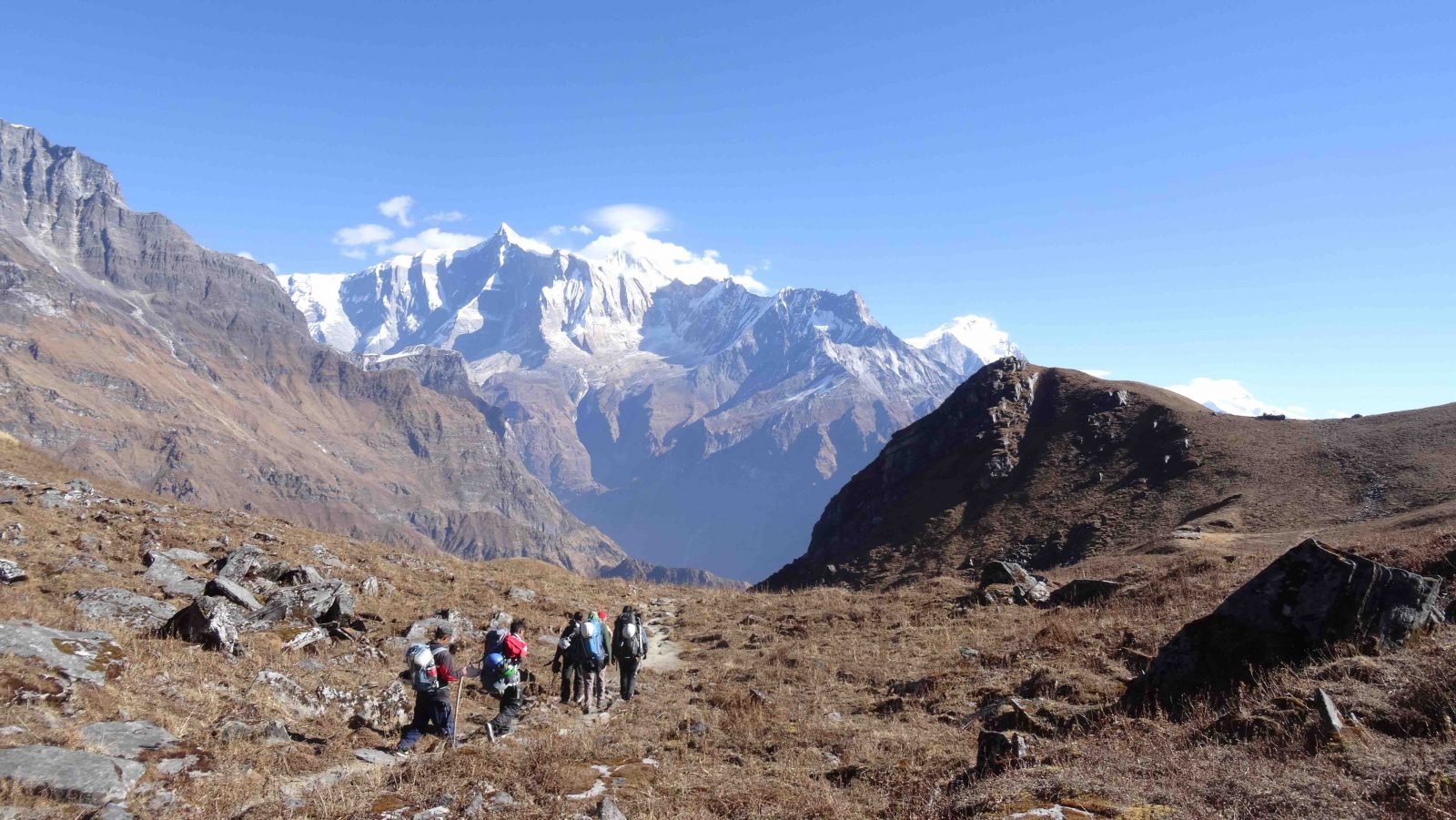
All too often in destinations like Nepal the great outdoors is an elite playground — reserved for wealthy tourists while locals rarely experience the world-famous mountains in their back yard. Whether as a means to kick-start a career in tourism, or to appreciate the mountains, Jagan’s Outdoor Education Project hopes to change that.
Over the last three years, Jagan has trained over 300 young people in outdoor adventures. By syphoning off three per cent of trip fees, he’s able to fund those that cannot afford to pay for the training. Some of these are porters learning to move up to the next stage (20% have become guides), some are women, a hugely underrepresented group in the adventure travel world, and others are young people in or outside of school, that relish the chance to explore.
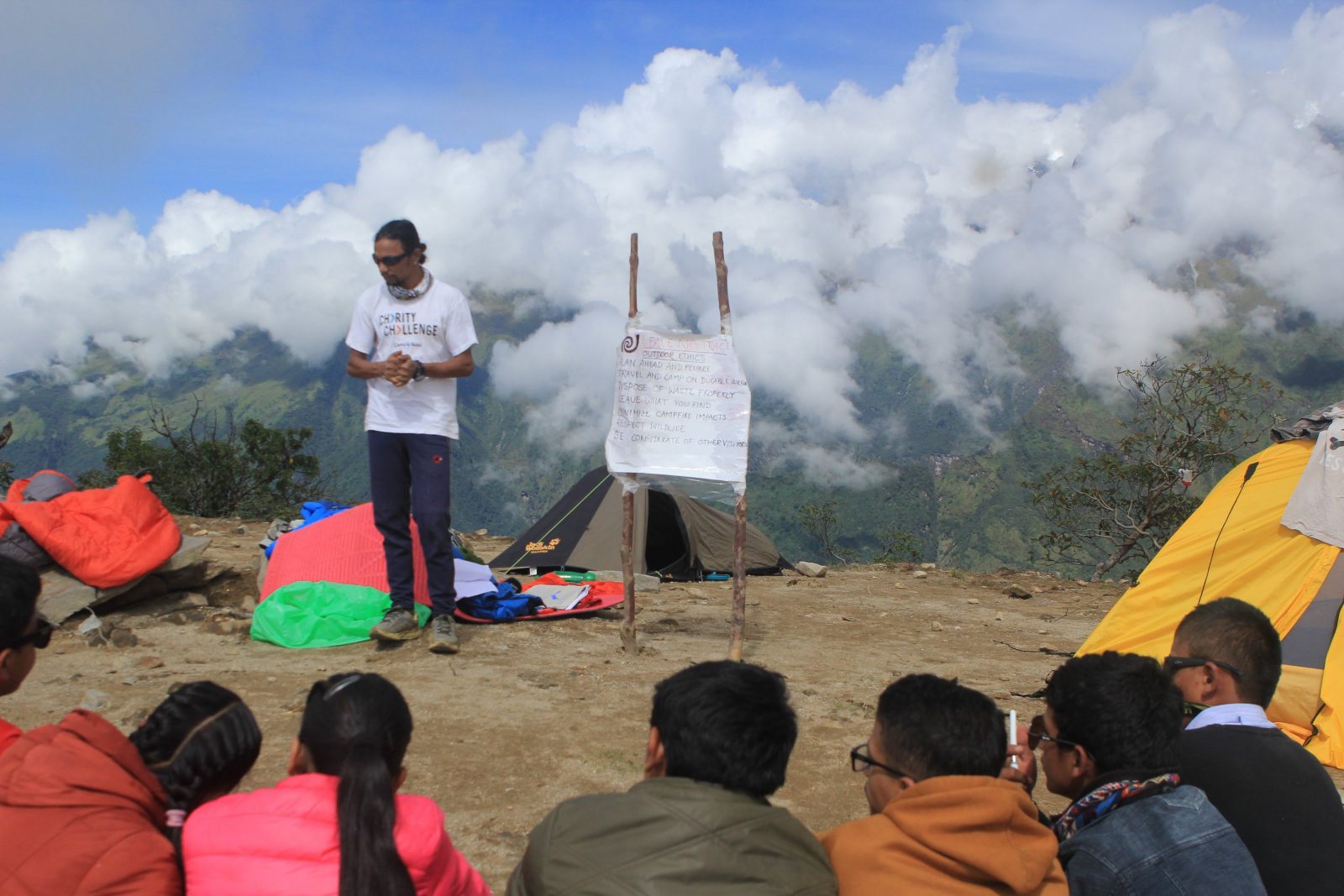
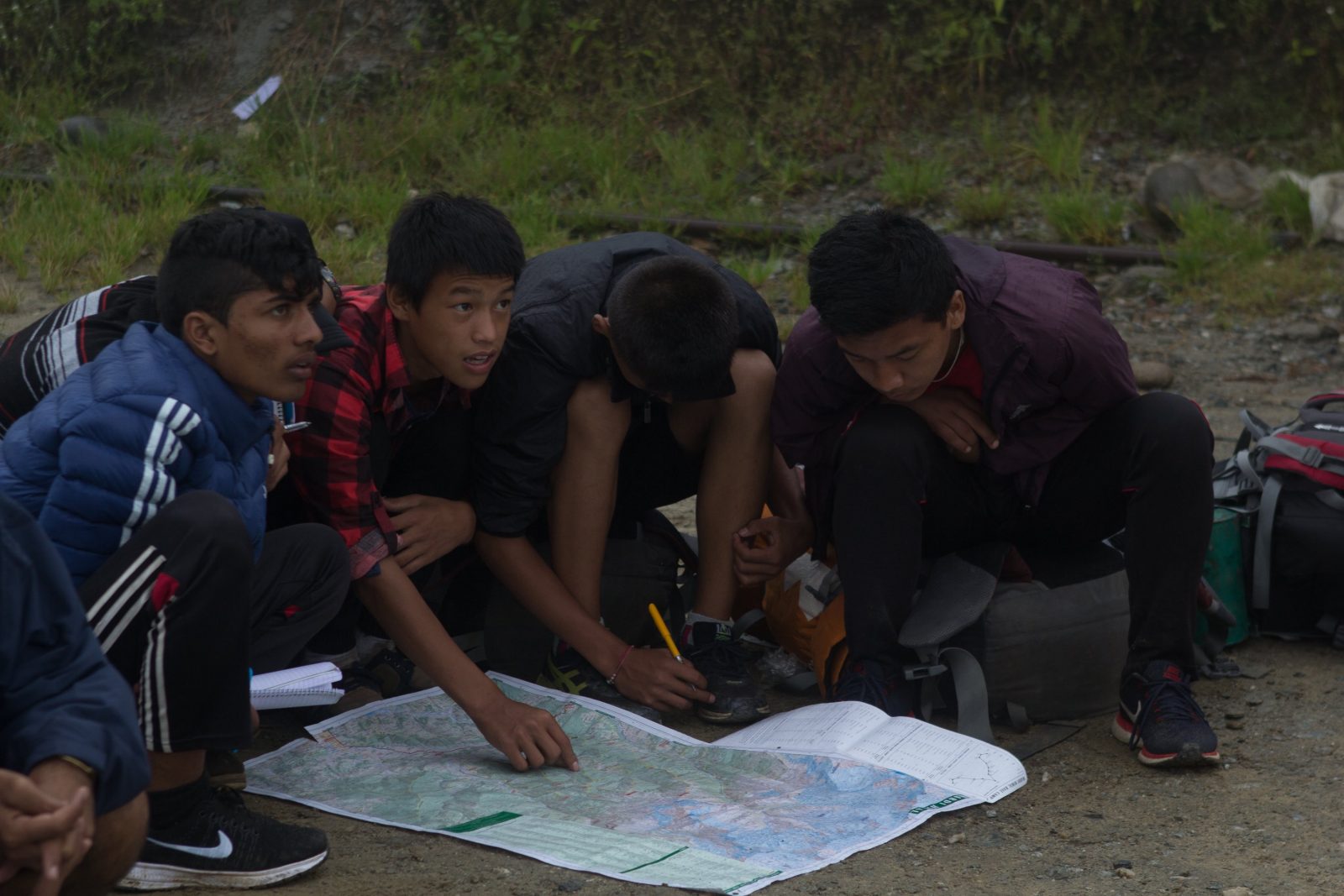
“Apart from a potential career, outdoor education allows youths to learn skills that just can’t be found in an indoor classroom. We firmly believe that introducing outdoor education will instil in students the ability to work together as a team, to think independently, develop survival skills and a strong appreciation for nature.”, Jagan explains as it strikes me that we could all do with a bit of Jagan’s outdoor education, especially in the UK right now.
Responsible tourism is about making a positive contribution to the places that need it most. Nepal is one of those destinations, especially since the knock-on effects of 2015’s devastating earthquake are still felt. Jagan is helping to double tourism’s impact by ensuring that Nepali’s benefit from it for generations to come. As motivation to book a trip goes, it doesn’t get much more compelling than that.
Make a positive impact just by booking an adventure in Nepal with Jagan and his team.

